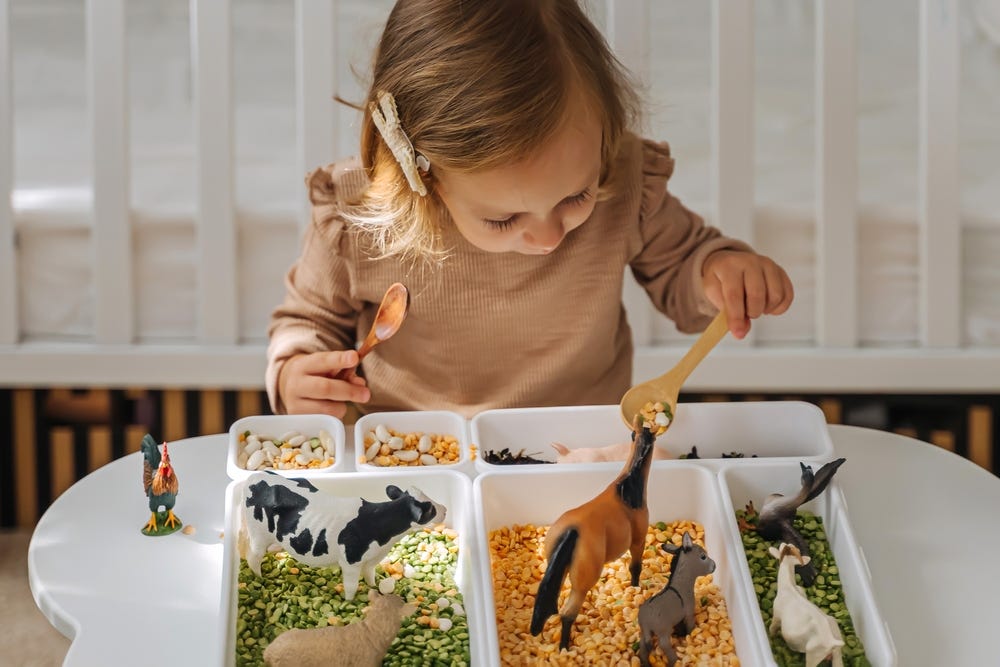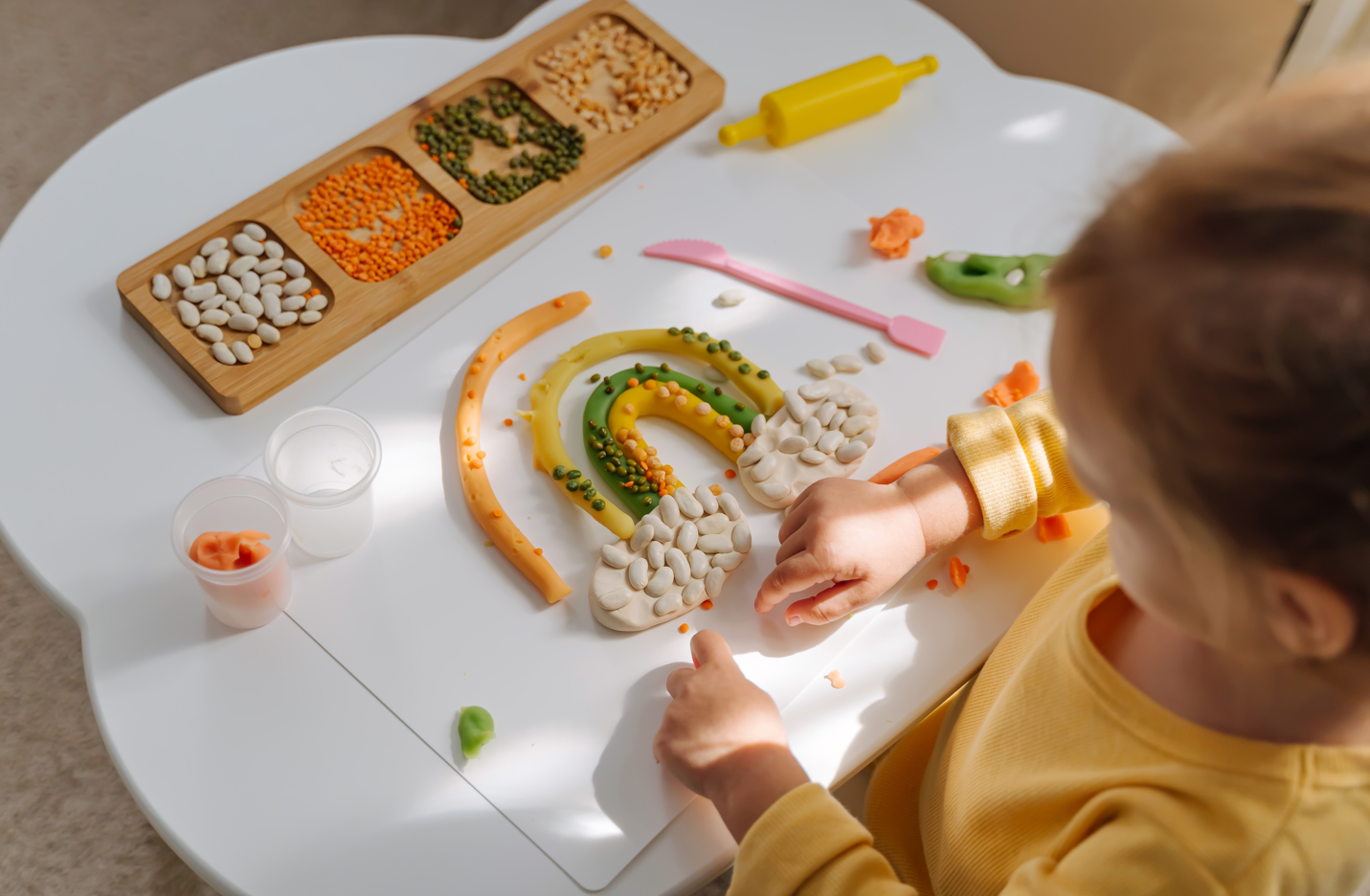
Benefits Of Sensory Play For Your Little One
Providing opportunities for active exploration and stimulation of your child’s senses.
by Incy Wincy Fingers founder, teacher and Biostime Toddler partner, Renee Zigic
When most parents hear the words ‘sensory play’, they immediately assume a huge mess and put it in the ‘that’s way too hard!’ basket, which I totally understand. However, from my experience, sensory play helps to support our little ones and their behaviours, such as those ‘big’ emotions that their active brains are trying to make sense of, as well as help children to calm down and retain information. This provides them with the skills to process and express how they are feeling and to try and self-regulate their emotions. I promise you: once you engage with sensory play and get the hang of it, you will never turn back.
What are the benefits of sensory play?
There are so many benefits from what I like to call ‘meaningful and purposeful sensory play’. It provides opportunities for active exploration and stimulation of your child’s senses, which is vital for healthy brain development. At the same time, it assists with the development of muscle strength and control within their precious hands, fingers and wrists, whilst exercising and strengthening hand-eye coordination. These are all super important skills that prepare our little humans for everyday tasks such as feeding, brushing their teeth, and for their journey ahead.


How does sensory play help with development?
Play-based learning performs a crucial role in the development of literacy and numeracy. As these are essential skills, children need to be exposed to opportunities to use them and see them being modelled by others in real-life situations. Words and numbers are everywhere in our world and our children are constantly making connections. These play experiences – together with our children’s innate capacity to create links – simply add value and meaning to their learning.
Within most sensory experiences you will find that literacy and numeracy are incidentally embedded throughout the activities. When children see language and number concepts used around them in meaningful ways, they begin to embed and internalise these concepts within their thinking; this amazingly turns into wonderful knowledge and skills. For example, using rich language and vocabulary to describe and talk about how the slippery, squelchy mud felt as their hands slid through it, ignites all their senses at once.
An environment rich in literacy and numeracy possibilities is, therefore, a great starting point and head start for their schooling journey. I know it may seem far away, however these are the magical years that count towards building those strong foundations through open-ended, meaningful play.
Final thoughts from Incy Wincy
I once read that ‘It is becoming increasingly clear through research on the brain as well as in other areas of study, that childhood needs play. Play acts as a forward feed mechanism into courageous, creative, rigorous thinking in adulthood.’ (Tina Bruce, Play Matters, Second Edition, Kathy Walker, 2007). Therefore, a soothing and satisfying open-ended experience, such as playing with taste-safe mud and magic sand, can offer our little humans opportunities to solve problems and challenge themselves by stepping out of their comfort zone. This allows them to expand their experiences and build their magical connection to nature in their world.
For more tips on ways to connect with your children when playing together follow our Facebook or Instagram.



